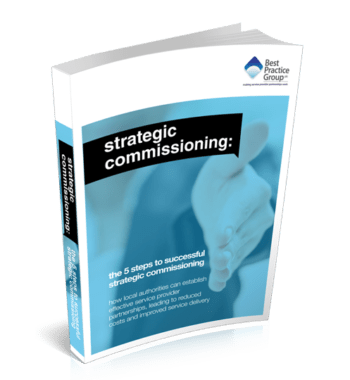 When UKCloud, the public sector hosting firm, went into liquidation, the government’s assurances that there would be little to no disruption as a result may have been premature.
When UKCloud, the public sector hosting firm, went into liquidation, the government’s assurances that there would be little to no disruption as a result may have been premature.
Reports in the media coming from some of UKCloud’s remaining customers suggest that matters may be a little different on the ground.
Therefore, this article looks at the current situation with the UKCloud liquidation and the importance of maintaining a watchful eye on your supplier’s financial health throughout your relationship with them in order to protect your organisation from similar challenging times to those that UKCloud’s customers find themselves in today.
UKCloud’s journey into liquidation
Skyscape, the business which was to later be renamed UKCloud, was founded in 2011 and became one of a small number of organisations supplying cloud hosting services purely to the public sector.
The company’s last set of published annual accounts reportedly shows a turnover of £38.2m, but a net loss of £16.5m, up from £2.5m the year before.
On 25 October 2022 UKCloud was placed into liquidation and the High Court appointed the Insolvency Service as the official receiver and liquidator, and EY as ‘special managers’ in the process.
The Cabinet Office may have had good reason to believe that there would be minimal “disruption to everyday public services”. After all, it had stated that the majority of its public sector clients had already been migrated to other providers and the special managers, EY, had reportedly made assurances that business as usual would be maintained, where possible, during the process.
However, reports in PublicTechnology.net suggest that just a few weeks after these initial assurances, UKCloud customers started to receive invoices showing an increase in costs of up to 700% for the hosting of their critical services.
As UKCloud service users include NHS trusts, police forces and local authorities, the tug on the public purse in an already stretched environment is not going to be comfortable, and the risk of services being maintained in such critical areas is one that has organisations rushing to find solutions.
The difference between administration, receivership and liquidation?
These three terms each mean that a significant change and disruption may imminently occur in your client–supplier relationship. However, despite their critical importance, some will still use these terms interchangeably and incorrectly, so we thought it might be appropriate to take a moment to clarify what each means and its implications to your relationship.
-
- Administration
A company can be placed into administration by its own directors or through a court order – the purpose being to hand responsibility for saving the company to an administrator who may be better placed to rescue a floundering business. The administrator is legally obliged to act in the best interests of all of the company’s creditors.
-
- Receivership
Administration is often a choice, but receivership is imposed on a struggling business by one of its creditors to enforce security against one or more of a company’s assets to ensure repayment of a secured debt.
Administrative receivership is, however, a little broader than this as the administrative receiver takes control over all the assets of an organisation by way of a floating charge.
-
- Liquidation
Often known as ‘winding up’ or ‘dissolution’, liquidation is a recognition that the company cannot be saved in its original form and now must go through the process of paying off its creditors through the sale of its property and assets.
In the case of UKCloud, the business was placed into liquidation and, therefore, it’s the responsibility of the liquidator and their special managers, EY, to maximise every penny of value that can be squeezed from the company to ensure that its creditors have the best chance of seeing their money returned to them.
Essentially, if EY feels that the best way of achieving this is to increase prices sevenfold for remaining UKCloud customers, then this is what they will do. Unfortunately, for those who are yet to initiate a process of migrating to a competitor, this is likely to take several months to complete safely.
How to protect your interests should your supplier fail
To avoid finding yourself in the unpleasant situation that the remaining UKCloud customers find themselves in, the single best time to set precautionary measures in motion is at the very outset of your client–supplier relationship.
-
- Complete a thorough financial due diligence analysis
You already know that an important part of your due diligence process is to review the financial health of your prospective supplier before you instruct them. Do they have a healthy cash flow and balance sheet, is their professional indemnity insurance going to offer good enough protection to cover your costs should your supplier fail, and how much open book access to their accounts is your supplier willing to provide you with throughout the project?
Due diligence at the procurement stage provides you with a snapshot of your supplier’s financial health, but it does little to offer insights into how financially robust they may be one, three or five years into delivering its services to you. For this, you will need to ensure that your supplier is contracted to provide appropriate open book access of their statutory and management accounts with you in good times and bad throughout the contract.
-
- Support your Intelligent Client Function (ICF) team
To borrow from Sun Tzu: “If you know the enemy and know yourself, you need not fear the result of a hundred battles. If you know yourself, but not the enemy, for every victory gained you will also suffer a defeat.” In essence, the greatest advantage you have is ‘insight’, the knowledge you have or can gain about alternative service providers, because the more you know the better you can plan to avoid medium and longer term service glitches.
You will already know that your ICF is a multidisciplinary team formed to monitor, guide and report on their supplier-side counterparts and through the stronger, closer working relationships they build they are more likely than anyone else to identify issues well in advance. Supporting this team with the right resourcing, funding, training and career development, has seen some organisations receive a payback of up to £11 for every £1 invested.
To have an inkling that your supplier may be going through challenging times long before it impacts their (or your) work (something to investigate, form an opinion on and react to) is far more beneficial than only coming to this realisation when primary talent starts to leave the project, deadlines slip and the media shines a spotlight on it. Your ICF team are your early warning system, allowing you to prepare, plan and put in place measures to mitigate the potential service disruption that would occur if your supplier fell on hard times.
-
- Build a biannual ‘review and refresh’ session into your agreement
Most major complex strategic supplier relationships/projects are carried out over a protracted period and, therefore, change is inevitable – changes in finance, technology, environment, economy and even end-user preferences. Therefore, building a twice-yearly ‘review and refresh’ session into your agreement with your supplier is part of the overall foundation for a safer supplier chain.
These sessions are used to focus on what was originally expected, what has been done, how the current situation may have transitioned and how improved market intelligence can better predict how things may support better outcomes in the future. This will allow all parties to determine an agreed adaptation to the contract, requirements and performance management that guides and governs them.
This is also an opportunity to continue to maintain a close understanding of your strategic partner, to identify any issues or to ask questions about their stability and financial challenges that you’ve identified over the previous months. It should be a frank and open session to get a ‘from the horse’s mouth’ perspective on anything that might cause supply chain instability in the future.
-
- Have a backup plan up and ready to go
Every client enters a new supplier relationship hoping that they have done enough to determine the right strategic partner for the project, but occasionally, no matter how much due diligence has been performed, they are unable to last the course. It’s important, therefore, to always have a backup plan that can be quickly activated to ensure continuity of delivery.
A good backup plan will involve an alternative supplier that’s been chosen with as much care as your primary supplier has been. And, throughout the project, it’s important to ensure that your backup supplier remains current, relevant and primed.
The next best time to focus on your backup readiness is when you first notice that your supplier may be struggling.
-
- Maintain and update your exit management plan
To ensure a smooth transition between primary and backup suppliers is possible, it’s important to regularly (at least every six months) review, and update where necessary, your exit and service transition plan. Have you been fostering your relationship with your backup supplier, do they have all the information they need to take over should this be necessary, have changes occurred in the project or its delivery that they should be made aware of?
-
- Minimise the impact
If you begin to suspect that your supplier is heading into choppy financial waters you may want to activate your impact reduction protocol. This may mean securing personal or sensitive data, considering how you pay outstanding sums to maximise supplier motivation to deliver, retaining talent that may otherwise be lost to supplier’s competitors and documenting key service processes and information, because if service supply is materially interrupted you’ll need a detailed record to support your case for exit and transition.
-
- Maintain your pricing knowledge with market engagement
Regular early informal engagement with the wider market, even when things are going well with your supplier, is an important part of determining whether you have a fair deal with them. It can also offer insights into whether they are undercharging you and, therefore, putting themselves in a precarious financial position. Benchmarking against others in the market can also offer guidance should you feel it’s more likely you’ll need the help of your backup supplier to determine whether the costs you agreed are still reasonable.
-
- Determine whether a realignment is possible
The rest of this article may have been about preparing for supplier failure, but it’s worth mentioning that not all signs of trouble on the horizon end in liquidation, and not all financial troubles are insurmountable. If there is anything you can do to set things back on a more productive path it makes financial sense to do so as, no matter how slick your exit strategy and backup plans may be, there will still be financial and inconvenience ramifications from having to make the transition. So, where possible, see if a realignment is possible.
Conclusion
The Cabinet Office is reported to have been financially supporting UKCloud to ensure that the lights are kept on while remaining customers seek alternative suppliers for their cloud hosting services. However, this funding is expected to end at the beginning of December, so it’s important to migrate services as soon as is safely possible.
Our advice on protecting your organisation from a similar fate is based on two considerations: preparation and insight. If you have one of these in place then you give yourself time and options; if you have both in place, you give yourself a chance at coming through any similar challenge, not unscathed, but also not broken.
UKCloud offers us a timely warning that following the fundamentals of good practice in procurement and ongoing post-contract strategic supplier management may seem pedestrian and time-consuming, but it can also save you from significant financial and reputational complications.

